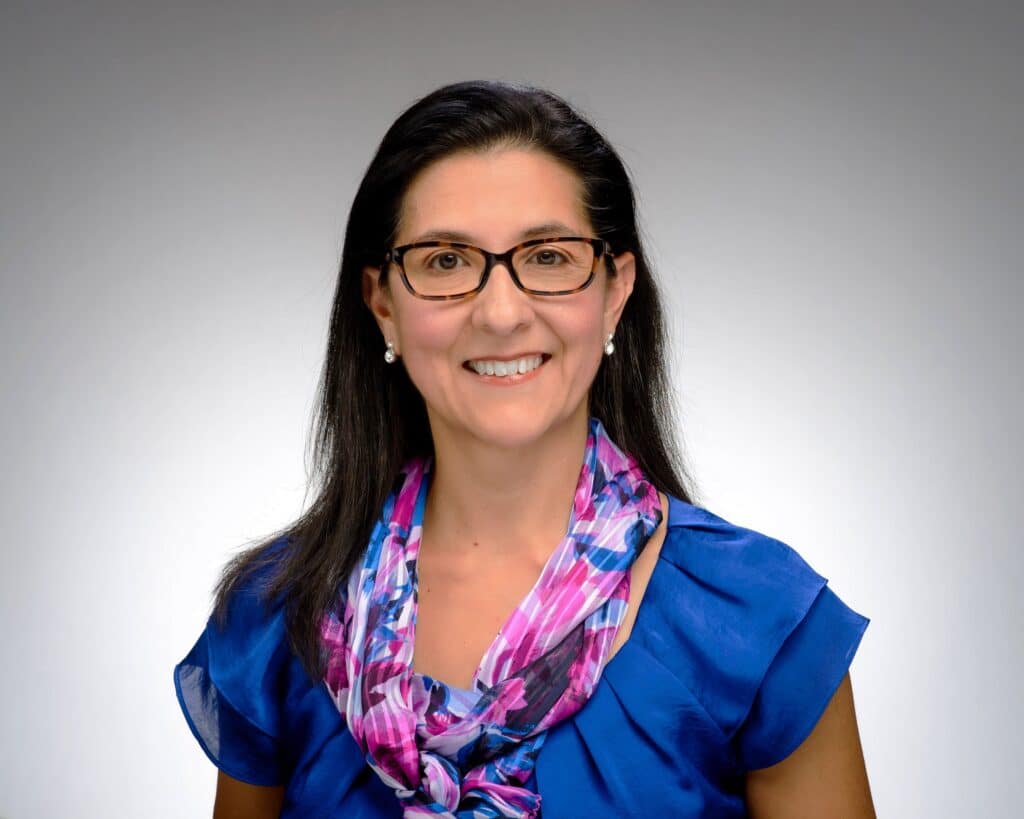The term “natural law” comes up in philosophical, theological and political discussions these days as society grapples with old and new ethical dilemmas.
OSV News’ Charlie Camosy recently spoke with Melissa Moschella, professor of the practice in philosophy at the University of Notre Dame’s McGrath Institute for Church Life and author of “Ethics, Politics, and Natural Law: Principles for Human Flourishing,” about the Catholic tradition surrounding this concept and its special importance and relevance in society today.
Charlie Camosy: Most readers have likely at least heard of the term “natural law,” while not knowing precisely to what it refers. Could you give us the short version?
Melissa Moschella: In the contexts of moral, political and legal philosophy, natural law theory is a tradition of thought dating back to the ancient Greeks and perhaps most famously articulated by St. Thomas Aquinas.
As I explain in more detail in the book, natural law refers to a set of ethical principles and moral norms (“laws”) that guide our choices and actions, marking out the path toward individual and social flourishing.
To clarify a common confusion, the “natural” in “natural law” does not mean “spontaneous” or “instinctive” or “what people always/usually do.” Instead, natural law is “natural” in two senses: 1. It can be known on the basis of natural reason, even without the aid of supernatural revelation. 2. Its principles direct us toward the fulfillment or perfection of our nature as rational, moral agents who, through our free choices, sculpt our characters (and the character of our communities) in ways that either promote or detract from our flourishing.
Camosy: One of the most common responses to the invocation of natural law is to point to the apparently massive and seemingly intractable disagreement we have — even in countries like the United States, not counting the broader world outside of the developed West. What do you make of all this disagreement?
Moschella: The natural moral law is in principle knowable by anyone, but this knowledge is not always easy to attain; proper education is required. In that sense, it’s like physics, biology or any body of knowledge.
Through ordinary experience and education, most people know (at least implicitly), the basic truths of physics and biology, as well as the basic truths of natural law, about which there is actually very little disagreement. For instance, does anyone deny that friendship and harmonious social relationships are inherently valuable, worthy of preserving and promoting; that authenticity is better than hypocrisy, courage better than cowardice, and justice better than injustice? Who disagrees with the claim that we ought to treat other people with respect and fairness, trying (at least) not to harm them and (when feasible) to help them?
These and other basic principles of natural law are at least implicitly accepted almost universally across time and culture. But just as basic principles of biology are widely known and shared, whereas the answers to advanced questions — e.g. what causes aging — are debated even among experts, so too with natural law: When, for instance, we try to apply basic natural law principles to complex issues like in vitro fertilization or immigration, there is much more ignorance and disagreement.
And when dealing with moral questions (by contrast with debates in fields like biology) there’s an added challenge: Our moral judgments are often distorted by our desire to rationalize what is most convenient or comfortable, to justify our own behavior, or to justify the belief dominant in our social network — a motivation that becomes especially strong when, as we see in contemporary culture, people’s sense of identity and belonging tend to be based on political-ideological commitments, rather than, say, their membership in a family, local community, or religious congregation.
This last point seems especially salient in accounting for the shrillness and vitriol that characterize contemporary moral and political disagreements.

Camosy: How does natural law relate to the particular topics of abortion and welcoming the stranger, where so many of our fellow citizens appear to so passionately and foundationally disagree with Catholic teaching? Do you think such teachings are available to human beings on the basis of natural law?
Moschella: Abortion and immigration are both examples of issues on which there is disagreement about how to apply generally agreed-upon principles of natural law.
Most people, for instance, recognize and agree with the natural law principle that forbids intentional killing of innocent human beings. And abortion is intentional killing of an innocent human being. (Interventions necessary to save the mother’s life that result in the child’s death as a side effect are not, morally speaking, abortions.) So, in this sense, the natural law argument against abortion is fairly straightforward.
But abortion is complicated for several reasons: 1. Although biologically it is clear that a distinct human being begins to exist at conception (when the sperm fertilizes the egg), for political reasons this fact is often obscured in public debates, and because pre-born human beings don’t yet manifest their distinctively human capacities, it can be easier to deny their humanity than it is to deny the humanity of more mature human beings. 2. Our culture is committed to fairness (another principle of natural law), and it seems “unfair” that only women bear the burden of pregnancy and childbirth. As a result, many who are personally opposed to abortion feel that abortion needs to be legal so that no woman is “forced” to bear this “unfair” burden. 3. The sexual revolution and development of hormonal birth control have led to a widespread cultural assumption that there is a fundamental right to “consequence-free” sex. And because contraceptives can and do fail, upholding this “right” requires access to abortion.
Ironically, these attitudes toward sex have arguably harmed women much more than men — because women suffer more psychologically from uncommitted sex, and because they bear the burden of making sex “consequence-free” (which requires that they take hormonal contraceptives that are harmful to their physical and psychological health, and/or undergo the trauma of abortion if contraceptives fail).
On immigration, the relevant natural law principle is fairness, often articulated as the Golden Rule: Do unto others as you would have others do unto you. Would I want someone to welcome me if I were a migrant seeking a better life for my family, or a refugee fleeing violence? Yes.
But determining what fairness requires is more complicated than that, especially at the policy level. Like all positive principles of the natural law — i.e. principles requiring you to help others (as opposed to principles that forbid directly harming others) — the Golden Rule will vary in application depending on the circumstances. And one relevant circumstance is whether you are able to help the stranger in need while still fulfilling your other obligations (including obligations to others, such as family members, who have needs that only you can meet).
So, applying the Golden Rule often requires considering what I refer to in the book as the vocation principle (indicating the need to establish a reasonable order of priorities in life in line with a harmonious set of vocational commitments). This is true not just for individuals, but also for communities — including political communities — which have to discern how to give due consideration to the needs of the stranger while also faithfully fulfilling their obligations to their own citizens.
In short, while any approach to this question that denies the humanity of the stranger or refuses to acknowledge any obligation to help would clearly be contrary to the natural law, there is no single right answer to this question, and the range of acceptable solutions will vary depending on the circumstances.
Camosy: We are in the midst of a massive political realignment at the moment. What do your views here imply about how Catholics should engage with politics?
Moschella: I discuss the social and political dimensions of human flourishing in Chapters Three and Four of the book. One key takeaway is that we are social and political beings, meaning that we need healthy communities at all levels — families, intermediate associations, religious communities, and political communities — in order to flourish. And natural law ultimately directs us to respect and promote the all-around flourishing of all human beings, which means promoting the common goods of the communities to which we belong, including the overarching common good of the political community.
We all have a serious moral obligation to promote the common good, but the way we do that will depend on our unique personal vocation. For instance, fulfilling parental responsibilities and educating one’s children to be virtuous and conscientious citizens is one of the primary ways many people contribute to the common good, as is diligently carrying out one’s professional responsibilities not merely or primarily with a view toward personal profit, but with a view toward using one’s talents to serve the needs of society.
With regard to more direct political engagement, it’s unlikely that the platform of either party will align with natural law principles (or Catholic social teaching) anytime in the foreseeable future.
Catholics should remember that their identity as Catholics is much more fundamental than — and should always take priority over — their political affiliation. Even in the midst of the most divisive political disputes, we should strive to remember that those with whom we disagree are fellow human beings and fellow citizens who share many of the same fundamental fears, hopes, desires and dreams as we do, avoiding the vilification of opponents that is so common in our public discourse, and building bridges by working with people of goodwill across the political spectrum to promote the flourishing of all.







